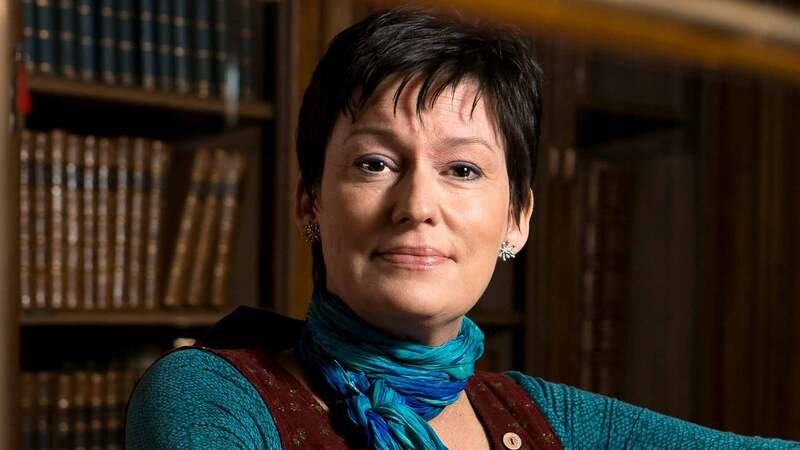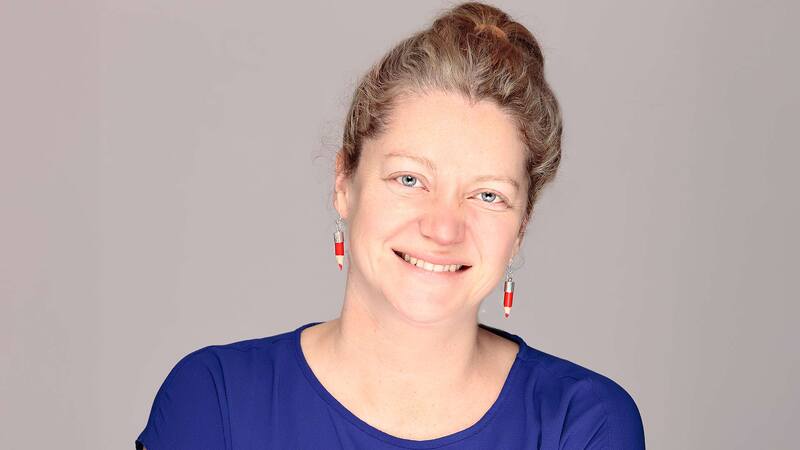You are viewing your 1 free article this month. Login to read more articles.
Hachette team reveals how the publisher is Changing the Story
When Sharmaine Lovegrove was thinking of crossing the aisle from literary scouting into publishing—with a view to set up a list “dedicated to inclusivity”—there was one company she thought would be the best fit.
Lovegrove, now publisher of Dialogue Books, an imprint of Little, Brown, says: “When I was in discussions with [Little, Brown m.d.] Charlie King and [Hachette UK c.e.o.] David Shelley, it was clear that Dialogue would have to be at Hachette because there was already an understanding of the problem of publishing’s lack of diversity and inclusivity—they weren’t just paying lip service to it and it wasn’t someone standing on a podium saying: ‘We need to do something.’ They were addressing it at a company-wide, cultural level.”
She adds: “It is not easy to be in an environment where people haven’t really been thinking about what—or who—was missing. It is not an easy thing for me at my level, or for someone at an entry level, to come into an industry so optically and obviously mono-cultural. It is isolating. When I talk to people across the trade the biggest issue we have [with employees from a diverse background] is retention and it’s precisely because of this cultural alienation. And it is really important that it is being recognised.”
What Lovegrove is specifically referring to is Changing the Story (CTS), Hachette’s diversity and inclusion programme that was set up by Shelley in early 2016, which she now co-chairs with John Murray Press m.d. Nick Davies. CTS’ core component is that it enables staff to set up networking groups, based around a diversity or inclusion subject. Employees then come up with initiatives to promote and spread awareness for their particular issue, with the idea that it could become part of Hachette’s wider corporate culture and policy.
Davies explains: “It’s grass-roots enthusiasm, and it has been powered by people’s dedication and passion. Along with [Shelley], our role as co-chairs of CTS is mainly to foster an environment that makes staff comfortable to come forward with ways to change our culture. Every company-wide initiative that has come out of CTS is from someone putting their hand up in a meeting and saying, ‘I think we should do this.’”
CTS has certainly grown rapidly from relatively humble beginnings. Just 13 people went to the first gathering in 2016; now around 150 people attend the monthly meetings, and 800 people across the company are involved in the networks. That’s quite a take-up, as there are 1,000 members of staff at Hachette’s Carmelite House HQ, and a further 750 in satellite offices and warehouses throughout the UK. There are now 10 networks, including Thrive (BAME employee network); Ageless (visibility and representation for employees aged over 50); All Together (recruitment and retention of those of low socioeconomic status or from regional backgrounds); Hachette Pride (supporting LGBTQIA+ staffers) and the Gender Balance Network (concerned with gender equality).
While it is easy to be cynical that this might be corporate airbrushing that ticks a social responsibility box, Hachette’s commitment to the cause is evidenced by the raft of internal policy measures and external programmes that have come directly from CTS networks’ suggestions. These include: the Diverse Leaders Future Mentoring Scheme, in which those from non-traditional backgrounds are taken under the wing of a Hachette board member; Turning Pages, a paid internship in partnership with Kings College London for those with disabilities; Orion on Tour, which saw its staff and authors visit schools in the north of England to promote regional diversity; and the Gender Balance Network, advising the board on the gender pay gap.
Five of Hachette's Fresh Chapters mentoring scheme participants (left), and (right) Saksia Bewley, Nick Davies and Sharmaine Lovegrove
The next phase
Changing the Story is, of course, one of the many diversity programmes the trade has rolled out in recent years (see below). But there is still much to be done across the industry. While the overall workforce is slowly coming to reflect the makeup of the country at large, upper management is certainly not. All the big houses have similar “key staff” pages on their corporate websites and, looking at the smiling mugshots of the big-wigs collectively, it becomes apparent that you would probably find more ethnic diversity in the audience of a Boris Johnson fringe event at the Conservative Party Conference than in the upper echelons of publishing.
When Lovegrove’s Dialogue Books was announced, she immediately became one of the most high-powered BAME-background publishers in the industry—and though Dialogue has shown in its launch list that it is primed to punch above its weight, at the end of the day it is at the moment a small-ish, boutique imprint. Only one of the UK’s top 25 publishers of 2018 to date, ranked by Nielsen BookScan TCM revenue, is owned or operated by someone from a BAME background (Bonnier Books’ Perminder Mann) and only two of the top 50 (Titan Books’ co-owner Vivian Cheung joins Mann).
This is an issue Hachette is keenly aware of, and a big reason it appointed Saskia Bewley as its first diversity and inclusion manager this summer. Part of Bewley’s role is to bring CTS into “the next phase” and ensure the initiatives that come out of the networks meld in with the more formal HR procedures.
Bewley, hired from information giant and Taylor & Francis parent Informa, where she held had a similar position, says there is a good platform at Hachette, primarily because of CTS: “Any meaningful diversity and inclusion programme can only work if it embeds itself in the business. And if you are going to do it right, it can’t be siloed initiatives, they must be connected. Coming in two years into the [CTS] journey is great, as a lot has been done. Now it’s how to map that and harness that energy, making the networks more coherent, bringing what we publish into it as well, and understanding how these internal processes can help the external.”
Ultimately, Lovegrove argues, “[inclusion] is about culture, not stats”. She says: “We are going to have a huge task on our hands over the next few years as this country is changing, and reading and storytelling has to be at the absolute centre of that. Being culturally aware and inclusive means that we can be at that centre—but the only way we can do that is if our company reflects society. Then we can publish for society as a whole. The key is listening—to staff, to readers—rather than imposing some big ideas that might sound great in a boardroom meeting. Our path has to be much more meaningful and long-term than that.”
Four recent industry diversity schemes
New recruiting policy
Bonnier Books UK
Bonnier recently announced a series of schemes to promote inclusivity, including increasing the salary it pays interns, a new internship for those from a BAME background and, perhaps most importantly, an “anonymised” recruitment policy which will have candidates filling in application forms rather than sending in CVs.
BAME traineeship
HarperCollins
HC has won a spate of awards, both inside and outside the industry, for its broad inclusivity agenda—including a Business in the Community Race Equality Award for its own employee-led scheme, HC All In. Its BAME traineeship, in operation since 2016, was opened to non-graduates last year in order to “draw on the widest pool of potential talent”.
Ethical pricing
Bradford Literature Festival
BLF is unquestionably the most diverse UK festival, and not just because of Bradford’s demographics (27% of the city is from an Asian or British Asian background). Director Syima Aslam’s policy of ethical pricing—free and/or discounted tickets to disadvantaged groups—ensures a mix of people unlike any other on the festival circuit. Just over half of the this year’s 70,349 attendees hailed from a BAME background. Data complied during the event from festival-goers showed that 83% mixed with other ethnic groups, while 84% said they felt a “sense of inclusion”.
Stormzy, WriteNow
Penguin Random House
PRH boss Tom Weldon’s high-profile spat this year with author Lionel Shriver (who accused PRH of being “drunk on virtue”) perhaps underscored the sheer weight of initiatives around diversity there are at the publisher. Shriver particularly objected to PRH’s inclusivity tracker, a voluntary tool for authors and staff to measure diversity, in order to foster PRH’s goal of “reflecting UK society” by 2025. WriteNow, begun in 2016, is the company's programme that finds and mentors burgeoning writers from under-represented backgrounds. This year PRH launched #Merky Books, the inclusive imprint from grime artist Stormzy. The list acquired its first title at the beginning of October.













